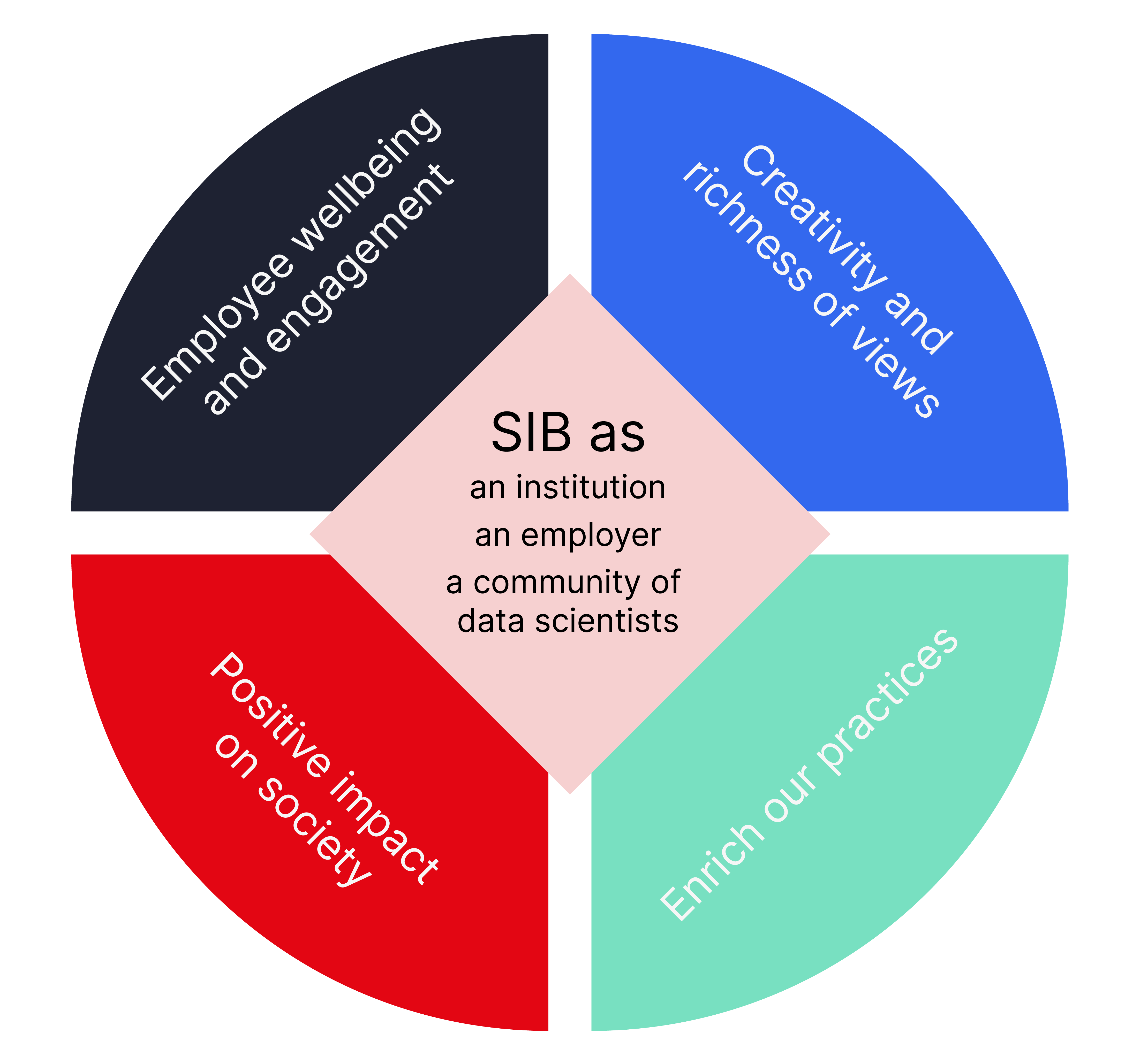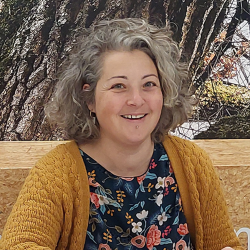Equality, diversity, and inclusion are core values of SIB as an employer and as the ambassador of the Swiss bioinformatics community. Find out what these terms mean in practice, why they matter to us, and the actions undertaken to support them throughout our activities and in science in general. And meet the SIB-wide Diversity focus group, whose role is to support and promote EDI principles across the institute’s activities
Horizon Europe - Gender Equality Plan (GEP) eligibility
Since 2022, research performing organisations and higher education establishments are required to have a GEP in place as an eligibility criterion to access to Horizon research funding.
About Equality, Diversity, Inclusion (EDI)
It is essential to distinguish between equity and equality. While equality ensures equal access to resources and opportunities for each individual or group, equity goes further by recognizing diverse circumstances of each person and providing specific resources to achieve equal outcomes.
Our institution aspires to embody equity, ensuring that everyone can rise above barriers, while actively implementing equality measures to ultimately support this goal. At SIB, we acknowledge the critical role we play as an employer and ambassador of the Swiss bioinformatics community in fostering diversity and equal opportunities in both our workplace and the scientific ecosystem.
EDI encompasses various facets, such as national or ethnic origin, sexual orientation, gender identity, age and disability. We remain dedicated to deriving the best value from the diverse profiles and backgrounds of our employees and members, fostering a culture of equality, inclusion, and respect. Our commitment is to enable everyone to reach their full potential and skills, reflecting these principles throughout our organization.
A few examples (more below) :
- 26 nationalities for 190 employees* are represented at SIB with a balanced distribution of the age pyramid;
- SIB’s salary policy ensures equal pay for equal responsibilities, and managerial positions are equally open to everyone, as reflected by the recurring equal pay analysis using the federal tool Logib;
- To promote work-life balance, our employees are entitled to benefits such as part-time work, flexible working hours or working from home whenever feasible;
- As women are strongly underrepresented in the academic scientific ecosystem, SIB promotes them by supporting their grant applications, and by striving for gender balance among the speakers at its conferences. Read the feedback of two of our scientists who attended a conference with all-women speakers
* as of 01.01.2023
Why EDI principles matter at SIB
As an institution aiming at scientific excellence and supporting progress in research and health, these principles enable us:
- To reflect the diverse views and needs of society by ensuring a diverse and fair representation in our organization and our research
- To have a positive impact on society and reduce the gender gap in science by providing new role models for society and promoting gender equality
- To leverage excellence by fostering creativity and diversity-driven innovation
As data scientists aiming to advance our knowledge of the world’s complexity, these principles enable us:
- To promote scientific advances and solutions that can benefit more people in society by fostering a data science practice that is ethical and fair and by looking for diverse and representative datasets
- To shape an inclusive digital future by ensuring a diverse representation of people and views on the programming side in an increasingly data driven world

As an employer aiming to offer a safe work environment and to attract top talents, these principles enable SIB:
- To attract people who recognize the best ideas no matter where they come from by providing a solid foundation to our organizational culture
- To increase employee engagement by fostering psychological safety, self-development, and open dialogue
How can EDI principles be further fostered at SIB
In addition to the examples above, this can be done
- … through the identification and monitoring of indicators across the various dimensions of diversity in the community of Swiss bioinformatics (e.g. qualitative and quantitative surveys)
- … through the improvement of processes (e.g. gender balanced representation in our official bodies and events) and policies (e.g. inclusive definition of parental leave, travel grants for women, social media campaign for women in science)
- … through an open dialogue and awareness raising with training (e.g. unconscious bias training as part of leadership courses), dedicated events (e.g. ‘Picture a scientist’ screening and discussion; a workshop on sex and gender biases in data science and AI)
- … through collaborations to develop and ensure best practices both internally and with our partners in Switzerland and abroad
Meet the Diversity focus group
The SIB Diversity focus group was created to support and promote EDI principles across the institute’s activities. Its mission is endorsed by the Council of Group Leaders as well as by SIB's Management, who are informed of the conclusions and recommendations. Marie Dangles, Director of Communications, People & Culture acts as the sponsor of the initiative.
The group includes employees and members from different locations and with different levels of seniority:
- Frederic Bastian, Associate Director, Evolutionary Bioinformatics, Lausanne;
- Natasha Glover, Associate Director, Computational Evolutionary Biology and Genomics, Lausanne;
- Vidhya Jagannathan, Data Scientist, Bern;
- Robert Waterhouse, Director, Environmental Bioinformatics, Lausanne.




